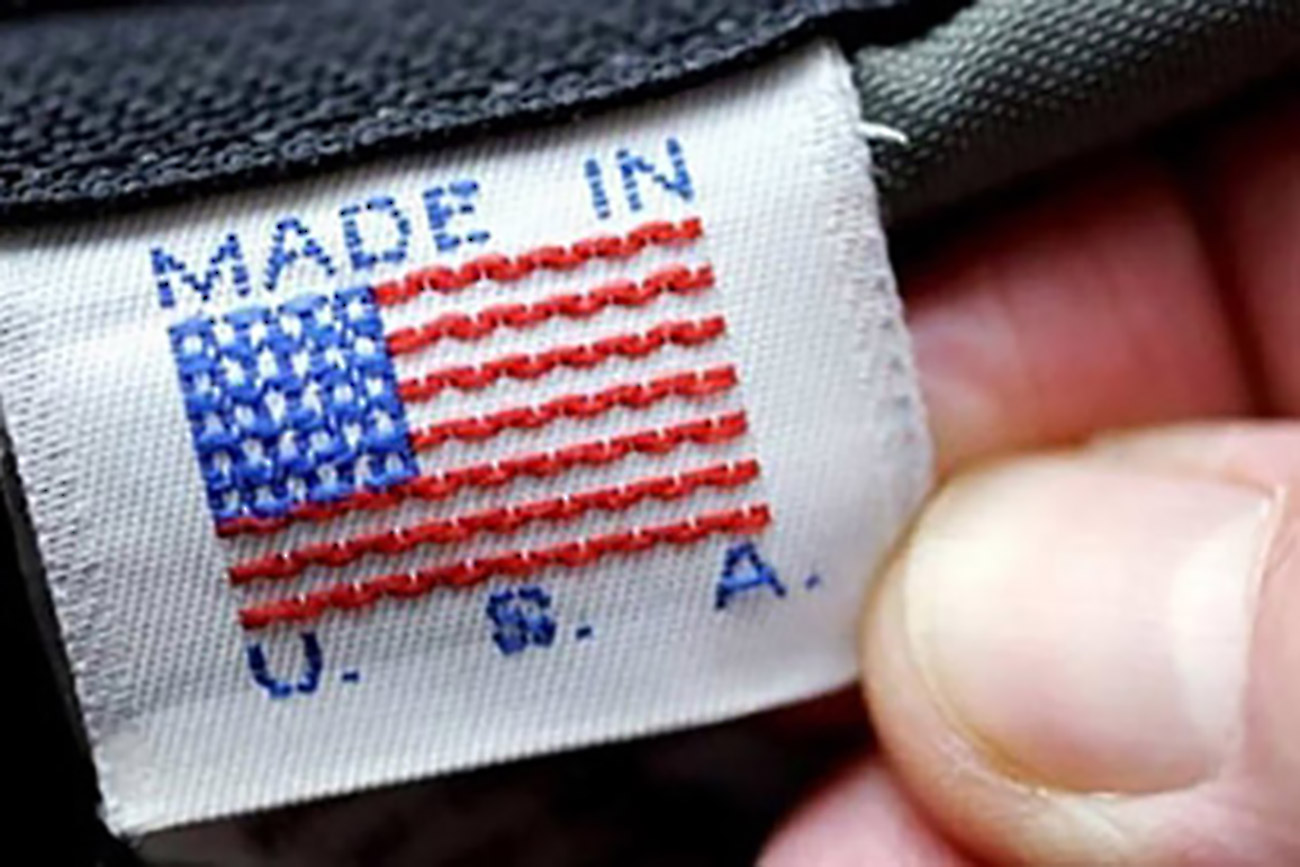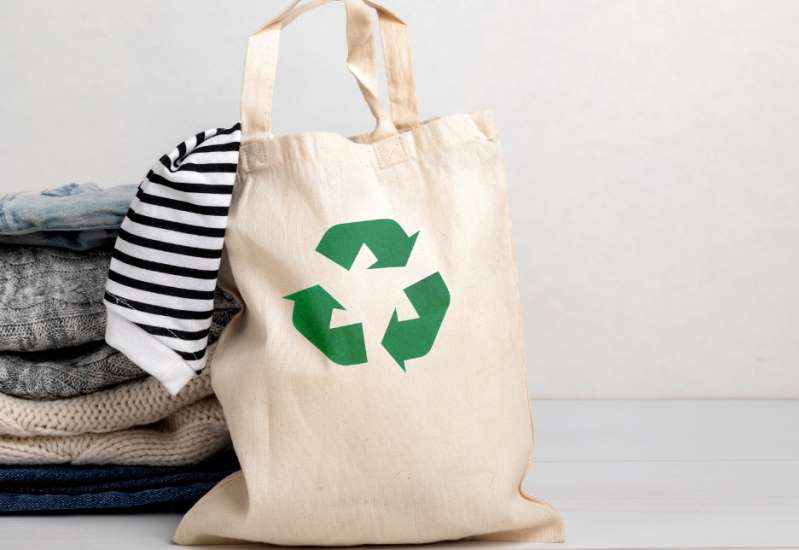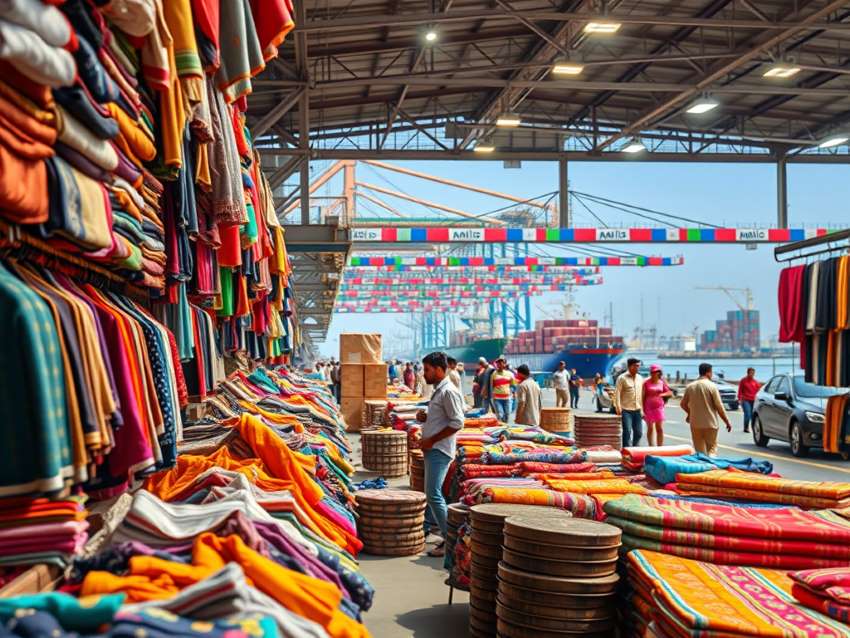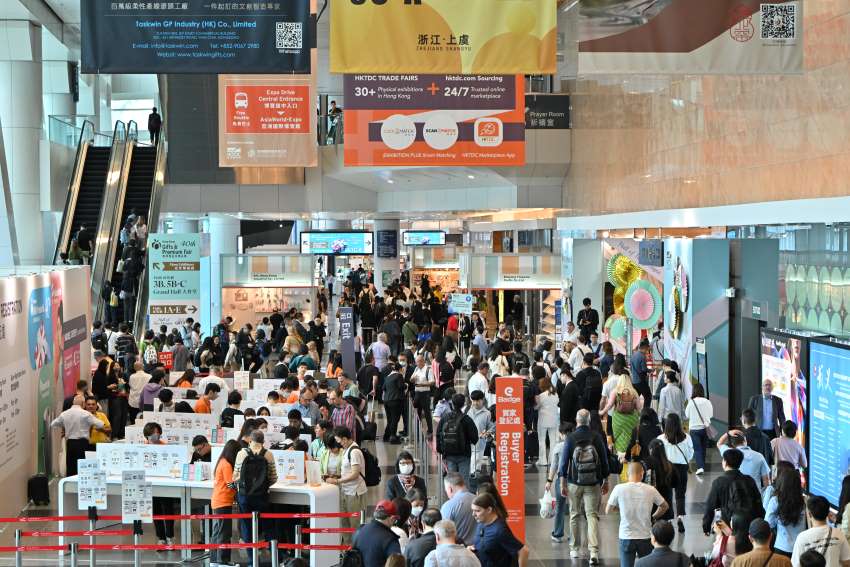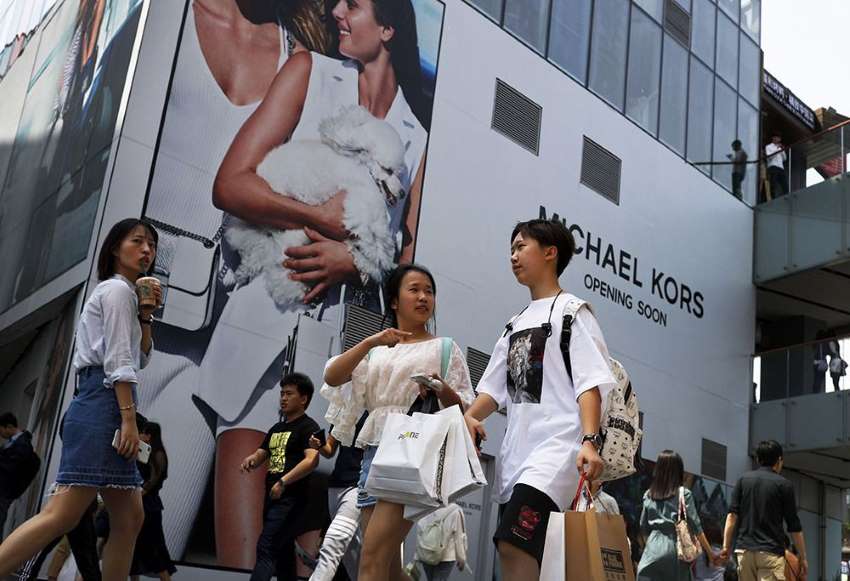FW
The European Committee of Textile Machinery Manufacturers (CEMATEX) will provide a grant to all participants of the Research & Education (RE) pavilion at ITMA 2015.
The R&E pavilion at ITMA 2015 will provide opportunities to research organisations and higher institutions of learning to share their R&D achievements, as well as current and future projects with the industry. In addition, the pavilion will feature a speakers’ platform for participating institutes to share their latest knowledge and projects.
The pavilion provides a platform for ITMA visitors to keep abreast of the latest research projects on garments, home textiles as well as technical textiles and nonwovens. It was a major feature at the last ITMA exhibition at Barcelona in 2011. It received an overwhelming support from the industry. A total of 48 exhibitors from 20 countries took part, which also saw the debut of the European Textile Research & Education Pavilion. The speakers’ platform attracted 29 international speakers from 10 countries.
CEMATEX is the owner of ITMA. CEMATEX is an organisation comprising nine national European textile machinery associations. ITMA is the world’s largest textile and garment technology showcase. ITMA 2015 will be held November 12 to 19, 2015, Milan, Italy.
www.cematex.com/
Hong Kong garment manufacturers are looking to Myanmar as a sourcing destination. About a dozen Hong Kong garment companies are to build plants in a special economic zone in Myanmar comprising 100 hectares. Most are undergarment manufacturers with some others producing jackets. One will process recycled fabrics to supply underwear and swimsuit manufacturers. One wants to establish a complete production chain in Myanmar, from textiles to dyeing. Therefore, it is looking for a big space to house its suppliers.
In contrast China’s garment manufacturing industry continues to lose its competitive edge as a low-cost clothing supplier through wage rises and increasing regulation. The Hong Kong government has signed an investment promotion and protection agreement with Myanmar. In fact, manufacturing in Myanmar is seen as being more attractive than in Cambodia or Bangladesh. Cambodia has influential labor unions, who are firm on minimum wages. In Bangladesh, big companies are thinking of stopping orders over concerns with its human rights and corporate social responsibility issues. But Myanmar has a huge workforce for whom wages are not an issue. The country is seen as politically stable.
Hong Kong companies relocating to Myanmar hope to benefit from the low and zero duties charged on its exports to the European Union.
Technology could allow hemp and flax to break cotton's global hold on textiles. Typically seen as a scratchy, hippy material, fibers like hemp and flax can now be softened to produce cloth that rivals cotton.
The reason flax, hemp and linen are stiff is down to the pectins that naturally occur in the plant – like paper. Naturally occurring enzymes can be used to rinse the raw fiber and remove all the pectins. What one comes out with is a soft, fine fiber of flax or hemp that can be blended with cotton but is far more sustainable than 100 per cent cotton or polyester.
Think of cotton, and one thinks of crisp white sheets. But what's being harvested is a flower and land is intensely – often industrially – farmed to meet global demands. The cotton plant has been genetically modified in a lab to offer a universal staple length (the length at which the fibers pull apart) and it might not be a variety indigenous to where it is being grown.
However, there is plenty of land to grow fiber. Bast fibers don't need anything except sunshine and rain. They can be grown in different parts of the world and in rotation with other crops. What's great about them is that they're prolific in growth and don't require many pesticides or herbicides.
After Joe's Jeans acquired Hudson Jeans, the Los Angeles premium-jeans maker, company has decided to relocate its production unit to Mexico from the US. Joe’s Jeans manufactures all its pants in Mexico to reduce production costs by about 20 to 35 per cent.
Announcing its first quarter financial results, Hamish Sandhu, Chief Financial Officer for Joe’s Jeans said that production in Mexico is expected to start during fall this year. The company believes that there is a huge opportunity in Mexico to reduce the cost per garment on the Hudson side of the business.
For the first quarter, the newly combined Joe’s Jeans showed a minor fiscal net loss and a boost in sales, both attributed to its acquisition of Hudson Clothing Holdings completed on September 30. For the first quarter ended February 28, Joe’s Jeans reported a net loss of $2.2 million compared with a net loss of $6.4 million for the same period a year earlier. The net loss was affected by charges and other costs related to the acquisition. Sales rose 61 per cent to $47.3 million. Hudson wholesale net sales stood at $17.3 million.
Bangladesh clothing exports to Japan is increasing and could touch $1 billion in value in a year due to capacity and product quality increases. Japanese buyers who used to import from China are increasingly showing interest on sourcing apparel items from Bangladesh. This dovetails with Tokyo's China-plus-one import diversification strategy. Even high end garment items from Bangladesh enter the Japanese market.
Bangladesh’s duty-free access to the Japanese market has also helped boost exports. Its shipment to Japan had turned around after the country's economy suffered in the wake of the 2011 earthquake and the associated tsunami and nuclear accident.
Bangladesh’s knitwear exports to Japan have grown by more than 50 per cent per annum due to relaxation of ‘Rules of Origin’ by the Japanese government in 2012. Being a member of the least developed countries' group, Bangladesh has duty-free access to Japan for woven products.
Japanese textile and clothing investors are also coming to Bangladesh. Top Japanese brands have started buying more apparel products from Bangladesh.
Reeling under pressure to either develop safety compliant factories or shift the hazardous ones to new locations to remain export friendly, garment makers in Bangladesh have sought government help. They have demanded policy support to immediately relocate their factories to ensure workers''safety.
Over last six months, global brands sourcing from the country have been canceling orders due to poor working conditions in factories. Orders worth around $110 million from 57 factories housed in shared buildings were cancelled by foreign retailers. Bangladesh Garment Manufacturers and Exporters Association (BGMEA) is said to have stopped production at 13 risky buildings in and around Dhaka during factory inspection.
According to Atiqul Islam, President of BGMEA, the government currently imposes 61 per cent duty on the import of pre-fabricated building materials, but since the need to relocate the factories to safe locations is an urgent priority, government must offer a 100 percent waiver on such items to minimise the relocation costs. Of the 3,600 garment factories now in operation, 40 percent are housed in shared buildings employing around 15 lakh people; the rest operate in converted and purpose-made buildings.
BGMEA also appealed to the government to waive all duties and taxes on the import of modern fire-fighting equipment and energy saving lights, especially for the export oriented factories. Currently, NBR charges 31 per cent in duties on the import of LED lights. Even Bangladesh Knitwear Manufacturers and Exporters Association urged the government to exclude value added taxes from their gas and electricity bills. It has also asked for extension of the deadline to submit VAT returns from one month to six months to minimise hassle. Bangladesh Textile Mills Association, on the other hand, has urged the government to reduce duties on the import of raw materials for the primary textiles sector.
www.bgmea.com.bd
Supply Chain USA will take place at the Texprocess Americas trade show from May 13 to May 15, 2014 in Atlanta. The Supply Chain USA pavilion is presented bySeams, the national association for the US sewn products industry. It will feature exhibits of cut and sew manufacturing, finished products, textiles and fabrics, threads and yarns, findings and trim, labels and narrow fabrics, packaging and distribution, and many other sewn products components and services. More than 35 companies are taking part.
The event helps sourcing, production, procurement and other industry professionals and executives network and build and strengthen key business relationships. Seams is a not-for-profit organization comprising sewn products contract and brand manufacturers and their suppliers. It supports the US sewn products industry through educational programs that will improve the quality and productivity of the sewn products industry.
Texprocess Americas is the industry’s largest North American trade show. It creates an opportunity for retail, brand, manufacturing executives and professionals involved in the sewn products industry to meet with leading international manufacturers and distributors of machinery, equipment, parts, supplies, systems, technology, supply chain solutions, and other products and services used for the development of sewn products.
www.texprocessamericas.com/
Lectra, the world leader in integrated technology solutions dedicated to industries using soft materials like fabrics, leather, technical textiles and composite materials has formed a strategic partnership with Chinese textile and apparel manufacturing giant, Ruyi Group. Lectra will support Ruyi in expanding operations at their Taian plant in order to supply a growing number of international luxury men’s wear clients, as well as an increasing number of their own brands.
Lectra will work with Ruyi to implement an integrated manufacturing project by supplying best-practice expertise and process optimization consulting as well as hardware and software solutions, to rollout new operations under a lean manufacturing methodology.
Headquartered in China’s Shandong province, Ruyi is one of the world’s largest industrial supply chains for wool and cotton processing. With revenues of more than $5 billion and over 30,000 employees, the group has public companies in Japan and China as well as subsidiaries in 36 countries around the world. They are a global leader in innovative textile processing and also a major end-garment supplier for international luxury men’s wear brands. Ruyi has a complete vertical fashion supply chain and is evolving towards a hybrid brand/manufacturing business model to optimize their resources, which range from farms to clothing stores.
Part of their new strategy is to capitalize on this expertise while moving deeper into the value chain by boosting manufacturing operations and adding cutting and sewing capacity. By having an end-to-end manufacturing chain in place, Ruyi will not only better serve their customers, but also optimize development and manufacturing for their own brands. At the heart of the project is the installation of a lean-ready cutting room, covering industrialization, pre-production and fabric cutting.
www.lectra.com
www.chinaruyi.com
Source Africa is now being organized from June 18 to June 20, 2014 in Cape Town, South Africa. It is a textile, apparel and footwear trade event. Source Africa matches African manufacturers, suppliers and service providers with global buyers and agents and gives industry decision makers an opportunity to examine a wide range of products, services and investment opportunities in Africa.
It features more than 200 African manufacturers, international suppliers and service providers. Buyers are from chain stores, mini-chains, independent retailers, boutiques as well as production and factory managers, trims buyers, agents, importers and other industry professionals. There will be more than 15 African country pavilions. Another important element will be a professional online matchmaking program. By effectively combining online technology together with a team of business matchmakers, event participants are profiled, provided access to an online matchmaking calendar with the ability to view and select exactly whom they want to meet.
Six of the world’s 10 fastest-growing economies between 2001 and 2010 were in Africa and the IMF says that between 2011 and 2015 African countries will account for seven of the top ten spots. Goldman Sachs has recently compared the current business opportunities in Africa with those in China in the early 1990s.
www.sourceafrica.co.za/
While RMG exporters in Bangladesh are reeling under pressure due to higher wages, safety and compliance issues etc. Now leaders of the newly formed UK Bangladesh Catalysts of Commerce and Industry have demanded permission from the government to allow transfer of money to invest in opening showrooms for clothing items in the UK.
As Iqbal Ahmed, Chairman of the newly formed platform points out, the government must allow garment exporters to invest 5-10 per cent of their export value in opening showrooms in the UK, because there is huge opportunity in that country. He added that the step would also help in boosting country’s image in the UK market. So far, £400 million has been invested by the non-resident Bangladeshis in the UK through NRB Bank in Bangladesh, informs Iqbal Ahmed, Chairman of the bank.
In a bid to attract investment from the UK, the forum also demanded that the government should develop a special economic zone in Sylhet so that people from Sylhet who live in England can invest in Bangladesh. Bajloor Rashid, President of the forum and also former president of Bangladesh Caterers Association in England was of the opinion that since there lies a great opportunity to attract UK investment in Bangladesh, the government should step in.



